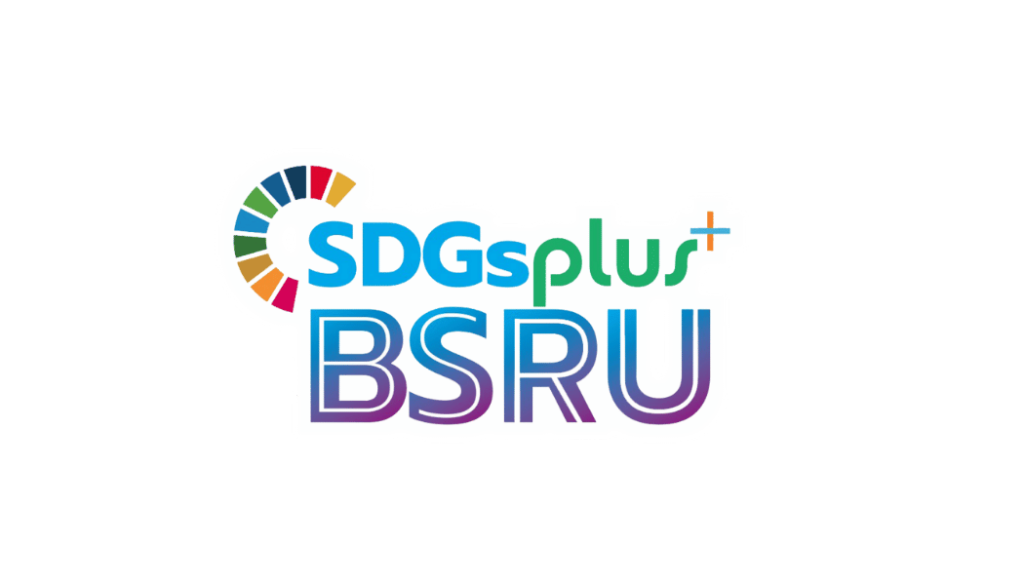Understanding Poverty and Its Impact on BSRU Students
Poverty is a multifaceted issue that affects millions of individuals and families across the globe. In Thailand, the average household size is 2.9 people, and the income distribution reveals significant disparities among different segments of the population. According to the National Statistics Office of Thailand, the average annual income per person varies across five quintiles, and when adjusted for household size, the annual income per household becomes
Quintile 1: Approximately 123,648 Thai baht (3,556 Thai baht per person)
Quintile 2: Approximately 222,204 Thai baht (6,207 Thai baht per person)
Quintile 3: Approximately 330,576 Thai baht (9,214 Thai baht per person)
Quintile 4: Approximately 491,940 Thai baht (13,665 Thai baht per person)
Quintile 5: Approximately 1,022,196 Thai baht (29,533 Thai baht per person)
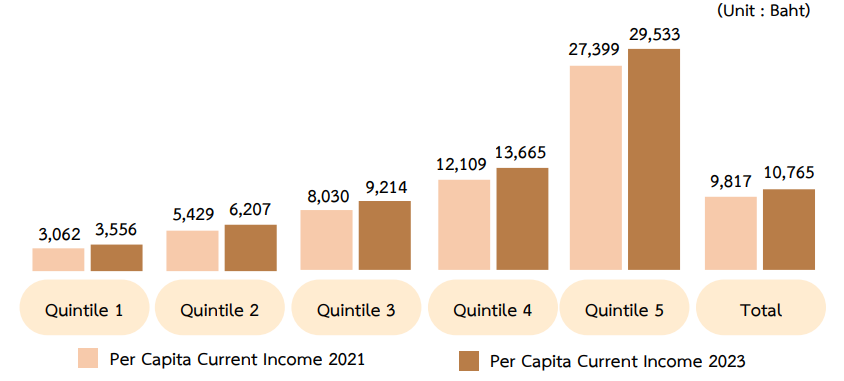
Source: National Statistics Office of Thailand
These figures illustrate that many families struggle to meet basic needs, particularly those in the lower income quintiles. At Bansomdejchaopraya Rajabhat University (BSRU), this economic reality is reflected in the student body. Out of 9,872 students, 5,912 report that their households earn less than 150,000 Thai baht annually, highlighting a significant economic burden. Alarmingly, 499 students declare that their households have zero income, underscoring the urgent need for support.
The students of BSRU come from diverse backgrounds, many facing the harsh realities of poverty. This socioeconomic challenge impacts not only their educational opportunities but also their overall well-being. Understanding this context is crucial as we explore the measures BSRU is implementing to support its students in overcoming these challenges and achieving their academic and personal goals.
To address these challenges, BSRU has implemented several initiatives aimed specifically at supporting economically disadvantaged students. The university actively promotes awareness of the Student Loan Fund (กยศ.) as a viable financial option for students. The Office of Student Affairs collaborates closely with the Student Loan Fund to provide comprehensive information and support to prospective borrowers.
In August 2023, a contract signing event was organized for the Student Loan Fund, facilitating access to education loans for both new borrowers and those transferring institutions. A total of 650 students were approved for loans, enabling them to finance their education and alleviate some of their financial burdens. To further support students and their families, BSRU hosts informational activities that invite parents to participate and ask questions about the loan process. One of the significant advantages of this loan program is the remarkably low interest rate of 1%, designed to ease the financial burden on families. This initiative ensures that students have access to essential resources while minimizing the financial strain on their households, empowering them to pursue their educational goals.
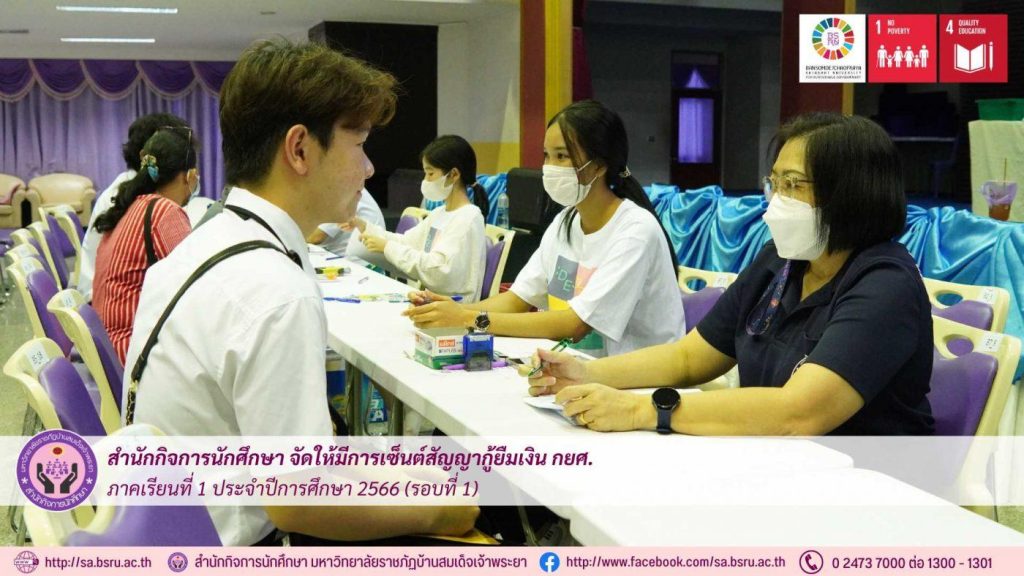
In addition to the student loan initiatives, BSRU is committed to supporting its economically disadvantaged students through the No Poverty SDG 1 Scholarship program (page 2, paragraph 1.4). This scholarship awards two students from each of the university’s 95 programs, ensuring that financial support reaches a diverse range of disciplines. By providing these scholarships, BSRU aims to alleviate the financial burdens faced by students from low-income backgrounds, empowering them to pursue their educational aspirations without the constraints of economic hardship.
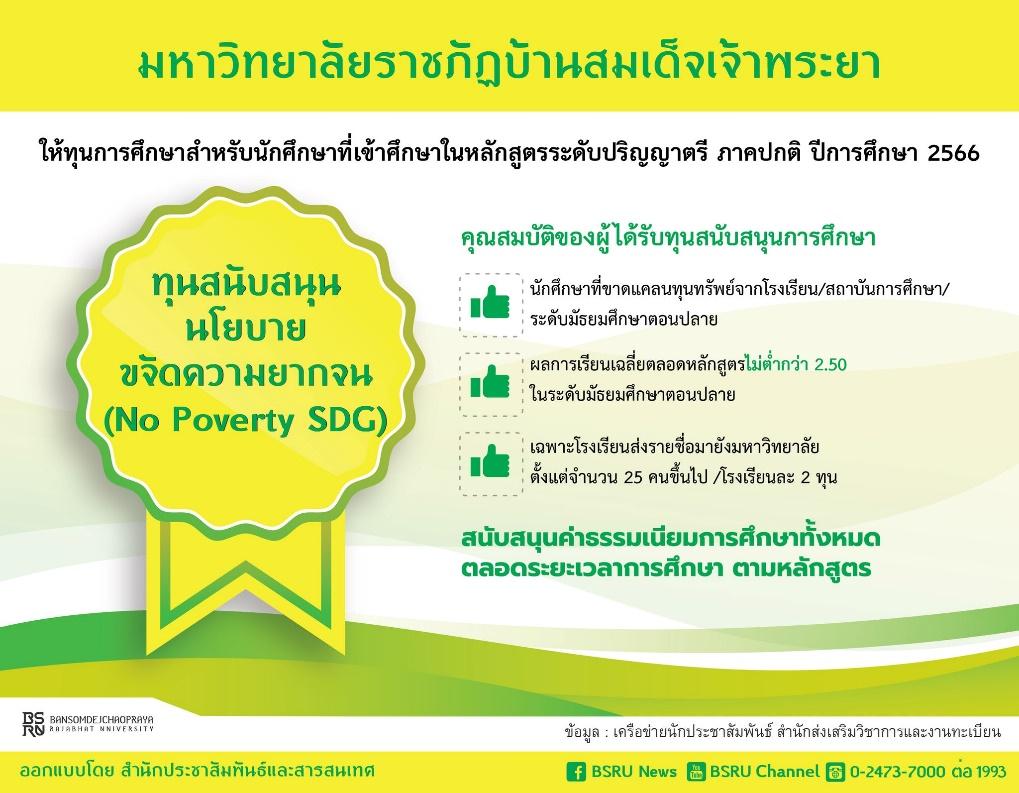
Additionally, from September 5-6, 2023, the university launched a program to help students find work while studying. This initiative employed 20 students in various roles, such as working in the university’s uniform and insignia shop, assisting in the gym, and providing support for students with disabilities. A total of 188 students expressed interest in participating in this program, highlighting the demand for work opportunities among the student population.
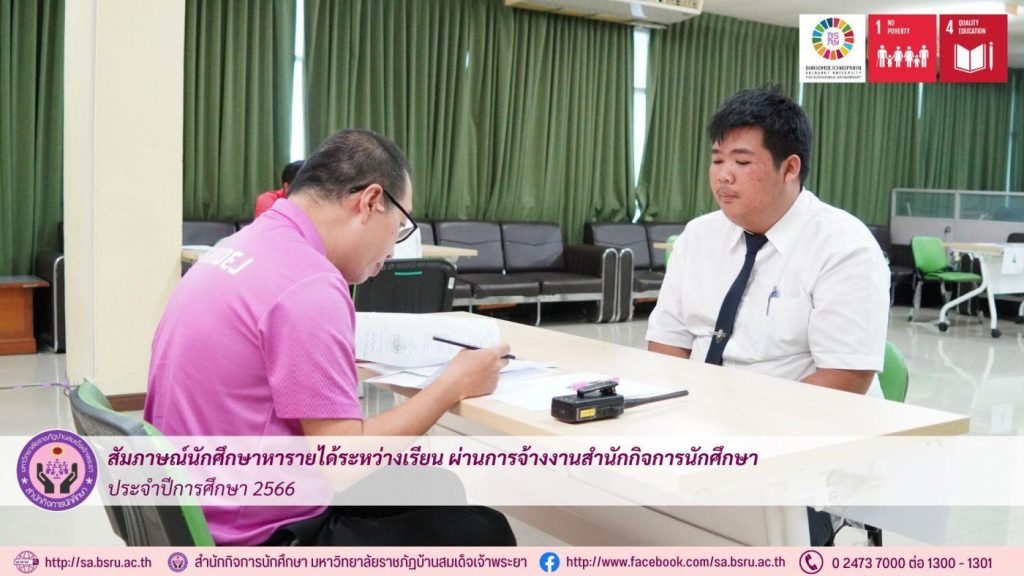
On September 13, 2023, a meeting was held for students who successfully secured positions through the work-study program to discuss their responsibilities and complete necessary documentation. The university emphasized the importance of these opportunities in helping students manage their educational and living expenses.
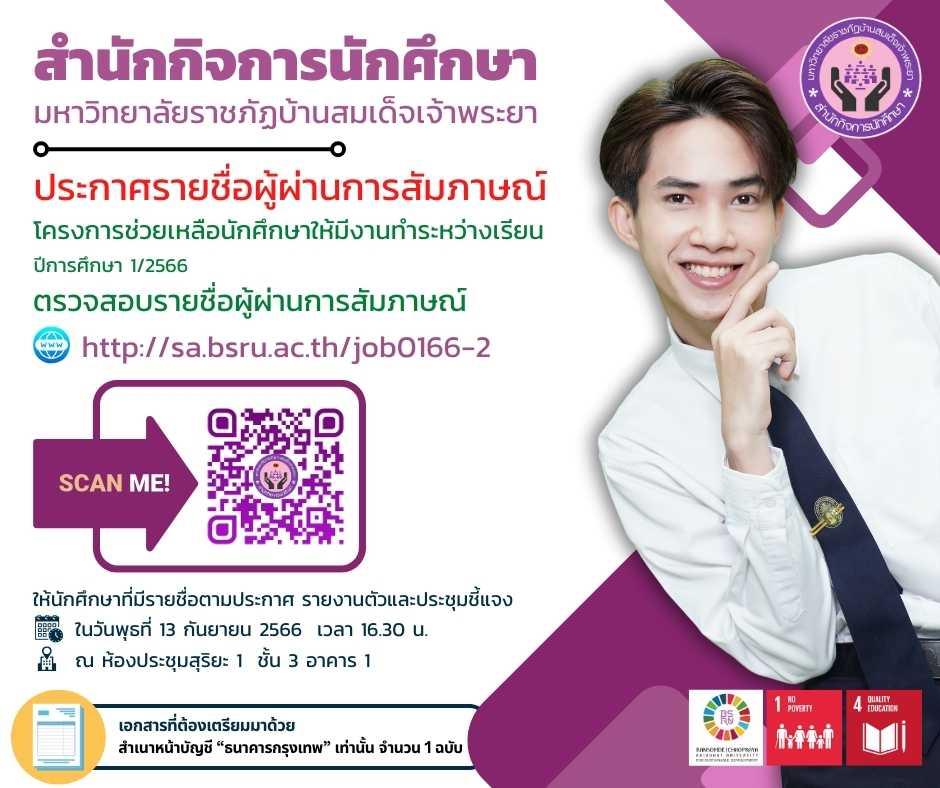
Furthermore, the university’s administration takes an active role in engaging with the parents of new students, providing them with essential information and reassurances regarding the support available for their children. In July 2023, BSRU’s president warmly welcomed parents during an orientation session for new students, emphasizing the university’s commitment to student welfare and success. During this event, the president highlighted various scholarship opportunities totaling 7,432,550 baht, designed to assist students in financing their education. These scholarships aim to reduce financial barriers, allowing students to focus on their studies and personal development. The administration encourages open communication, inviting parents to ask questions and discuss their concerns, thereby fostering a supportive community that reinforces the university’s mission to create an inclusive and nurturing environment for all students.
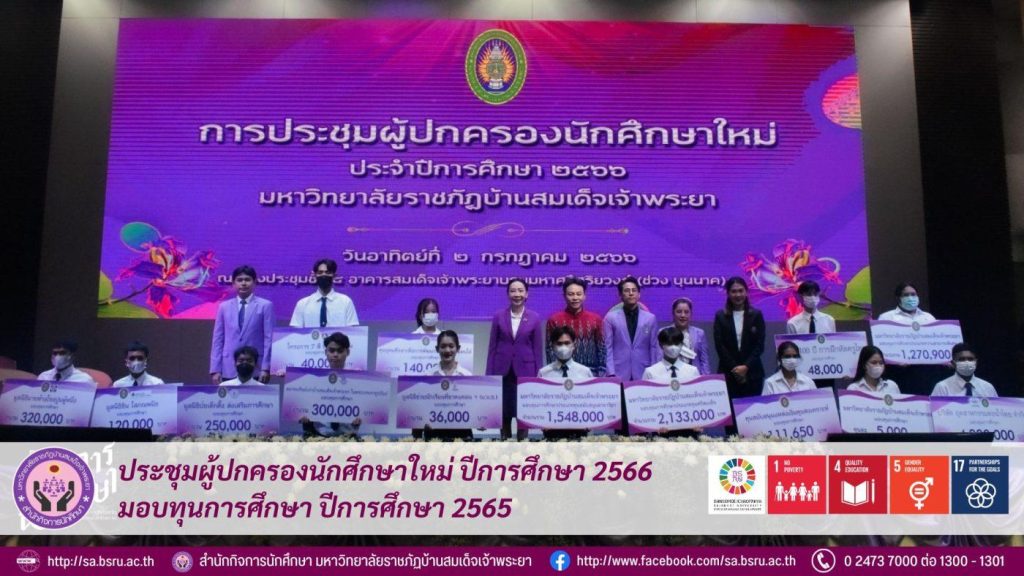
BSRU is proud to offer the Southern Border Provinces Higher Education Scholarship to students from the southern border provinces of Thailand, including Pattani, Yala, Narathiwat, and parts of Songkhla. This scholarship aims to support economically disadvantaged students in pursuing higher education, thereby reducing financial barriers and promoting social equity. By providing crucial financial assistance, the scholarship empowers these students to continue their education and develop the skills necessary to contribute to their communities.
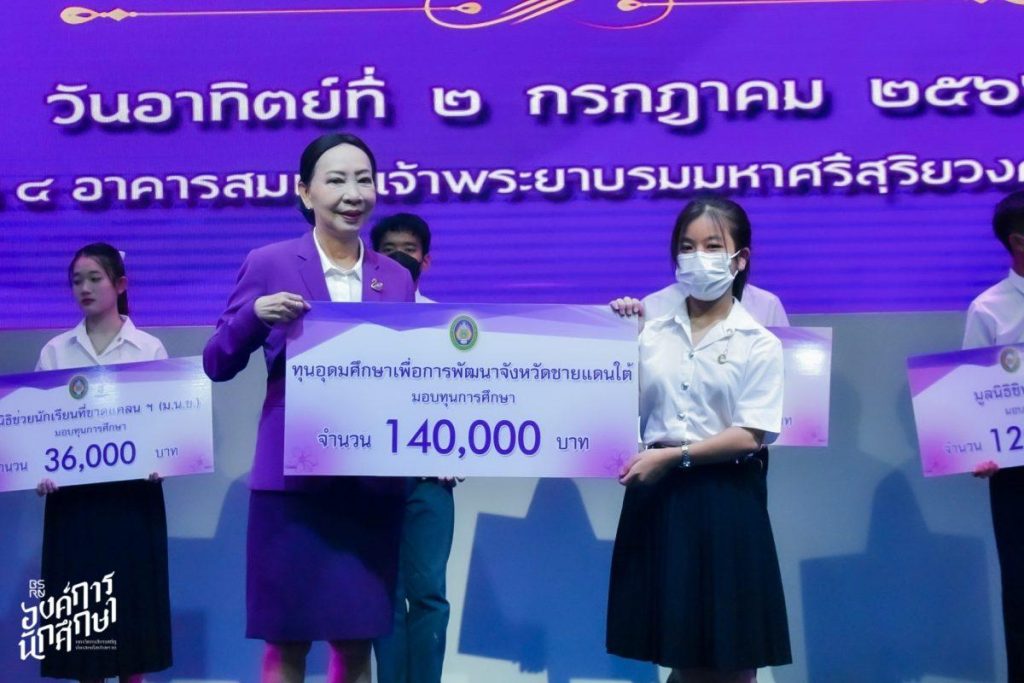
Through these measures, BSRU is committed to alleviating poverty and fostering an inclusive environment where all students have the opportunity to thrive. Understanding this context is crucial as we explore the ongoing efforts to empower students and support their educational journeys, particularly those from low-income backgrounds.
